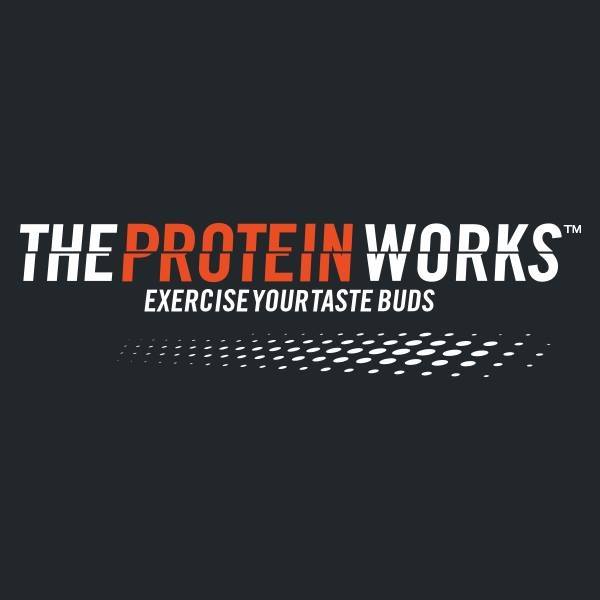
Is Sugar Addictive
An addiction is defined by the NHS as a strong, uncontrollable need to take drugs, drink alcohol or carry out a particular activity such as gambling.
By the Oxford dictionary – as a fact or condition of being addicted to a particular substance or activity.
Many argue we can’t be addicted to food because eating is essential for life, and people eat for many reasons unrelated to their daily energy requirements. Many eat for sport, body composition, guilt, stress, or for pleasure for example.
While others claim that you can get hooked on sugar in particular which lead to endless eating due to the ‘addiction.’
Sugar Addiction
This is in response to an article that was sent to me – http://theconversation.com/food-addiction-how-processed-food-makes-you-eat-more-15747
First of all I would like to say that most people who claim to have a sugar addiction normally say it laughing and light hearted way. Introduce me to someone with a drug addiction or alcoholic that talks of the addiction in the same manner?
Food addiction seems a rather plausible explanation for the overconsumption fuelling this obesity epidemic. But does it stand up?
In response to the article, I would argue the fact that consuming food that has a high glycemic index (GI) shake, does not necessarily lead to individuals feeling hungrier a couple of hours after consumption.
I look to Luke Johnson, of Shredded by Science, who posted about this topic. ‘What people fail to remember is that people eat mixed meals with carbohydrates, fats and protein, this will impact on the GI value. Williams et al (2008) showed that a GI response to the same food in the same person had different responses from one day to the next. (http://www.ncbi.nlm.nih.gov/pubmed/18186950)
A new randomised crossover design trial looked at a low GI breakfast and a high GI breakfast and the effects they had on both appetite and the amount of food they ate for the rest of the day. The subjects were required to rate their appetite levels every hour for that day. Well contrary to popular belief the high GI groups appetite was significantly lower immediately after their meals and also lower throughout the day compared to the low GI group (http://www.ncbi.nlm.nih.gov/pubmed/23653284)
There was no significant difference in total calories consumed between the groups. But a limiting factor was that the meals and snackswere prescribed to the subjects to eat. If they had to make personal choices would there have been a different story over a week, a month, a year? So next time you hear someone say that High GI carbs will make you hungrier than low GI carbs think twice.’
An addiction needs to be both physiological and psychological in nature. Addictions have been shown to be dependant on the size of the dose of the substrate. For example everyone that drinks alcohol is not an addict. Alcohol can easily be consumed in moderation and not cause you to become an alcoholic. So when ever examining an addiction the dosage size being consumed must be taken into consideration. This where some rat studies can not be compared to humans as the dosage of sugar fed to the rats is ridiculous high. Sometimes comparable to 50+ cans of coke a day.
Sugar Research
Much research has been published showing the same responses in the brain when sugar is consumed compared with drugs and these are concluded as proof that sugar is addictive. For example in 2013, a paper concluded ‘Rats find Oreos as addictive as cocaine’ (1) and in 2008 a study withheld for 12 hours from rats, and then 4 hours into their normal active period they were given free access to sugar or chow. The rats ended up choosing the sugar which lead the scientists to conclude sugar was addictive! (2) However, I have to question the conclusions, because deprive food from anyone and I will have no doubt they will end up overeating energy dense foods, like sugar. That doesn’t make it addictive.
Having done my research on the topic I came across a good analogy known as the ‘fruit test.’ Fruit contains sugar, fructose in particular, but if I eat an endless amount of that will I become addicted to it? Most definitely not and I can say that from experience, I love fruit, and certain days eat shed loads of it especially when on holiday, but am I addicted? Hell no! I do not find myself endless binging on fruit uncontrollably non stop, which is a sign of an addiction, and shown with drug addicts.
To truly examine and test an addiction you need to be able to test an individuals tolerance, withdrawal and overconsumption of that substrate. Just saying that they over consumed the substrate meant they were addicted is not a true sign of addiction, especially when tested in rats, which is what most of the studies have been carried out on.
When someone is exposed to a substrate constantly a tolerance can develop, just like with alcohol for example, this results in them requiring more of the substrate. As intake increases a physical dependence can develop as their brain becomes normalised to the new high levels. If the substance is then removed, withdrawal symptoms kick in, and in some cases even life threatening behaviours occurs in order to get the substrate.
This then leads to an addiction, however, there is no evidence showing there is a PHYSICAL dependence on sugar once withdrawn, in any experiments. If someone was truly addicted to sugar why would they choose to eat a donut when they could go straight to the source? You do not hear of people constantly dipping into a bag of sugar, which is cheaper, with a spoon throughout the day to feed their addiction now do you. In the study that was shared to my page, we do not see withdrawal from the substate tested and see no physical dependance to feed their addiction examined. In tests conducted with rats that have been put through withdrawal of sugar, you would expect to see drastic behaviour that is targeted towards getting sugar, but this has been observed. A review on actual human studies in this area concluded that animal models of sucrose addiction aren’t supported by human studies, and that there is no evidence in the available literature that sugar is addictive to humans. (3)
People claiming to have an ‘addiction’ to sugar is not a true in my opinion, like what is shown in alcoholics or drug addicts, this is a situation where an individual finds certain surgery foods more palatable or more seriously an eating disorder – an abnormal attitude towards food that causes someone to change their eating habits and behaviour. The term ‘food addiction’ has been proposed as a subclass of binge eating disorder that involves both a mental and physical disorder, but this is getting into a grey area which is vague in research. ‘In our opinion, the equation of “food addiction” with BED must be viewed with caution. The impaired control over eating behaviour in “eating addiction” does not necessarily require that the affected individual experiences a sense of lack of control over eating during a single episode of overeating. In this context, the term “grazing” can describe an unplanned and mindless eating behaviour that can persist throughout the day, but which does not necessarily include eating binges.’ (4) Quite simply there is no research or evidence to support a dependence addiction cycle like that developed for alcohol and drugs. (3)
Many of you know I like to advise flexible dieting, consuming nutrient dense minimally processed food 80% of the time and 20% processed food that I enjoy. Make sure your dietincludes the foods you enjoy. Even eating processed foods, in moderation, allows you to live a balanced lifestyle. Making your diet sustainable, enjoyable and your fitness goals more achievable. Restricting complete food groups or certain types of foods that you enjoy is only setting yourself up for failure as restriction causes cravings and a mentality to want to binge, due to the rigid dieting guidelines. Resulting in your chucking in the towel, binging, feeling guilty, and the binge-guilt cycle starts.
So in my opinion look to an inclusive diet which you can sustain, enjoy and reach your goals.
Follow me on Twitter and Facebook for more fitness and nutrition tips and information.
References:
1. Nicole M. Avena, Pedro Rada, Bartley G. Hoebel Evidence for sugar addiction: Behavioral and neurochemical effects of intermittent, excessive sugar intake. Neurosci Biobehav Rev. 2008; 32(1): 20–39.
2. David Benton. The plausibility of sugar addiction and its role in obesity and eating disorders. June 2010 Volume 29, Issue 3, Pages 288–303.
*In this context, the term “grazing” can describe an unplanned and mindless eating behaviour that can persist throughout the day, but which does not necessarily include eating binges.’ (3) Quite simply there is no research or evidence to support a dependence addiction cycle like that developed for alcohol and drugs. (4)
3. Johannes Hebebranda, Ozgur Albayraka, Roger Adan, Jochen Antela, Carlos Dieguez, Johannes de Jongb, Gareth Leng, John Menzies, Julian G. Mercerf, Michelle Murphyf, Geoffrey van der Plasse, Suzanne L. Dickson. “Eating addiction”, rather than “food addiction”, better captures addictive-like eating behavior. Neuroscience & Biobehavioral Reviews. Volume 47, November 2014, Pages 295-306.
4. David Benton. THE PLAUSIBILITY OF SUGAR ADDICTION AND ITS ROLE IN OBESITY AND EATING DISORDERS. June 2010 Volume 29, Issue 3, Pages 288-303.






No Comments yet!